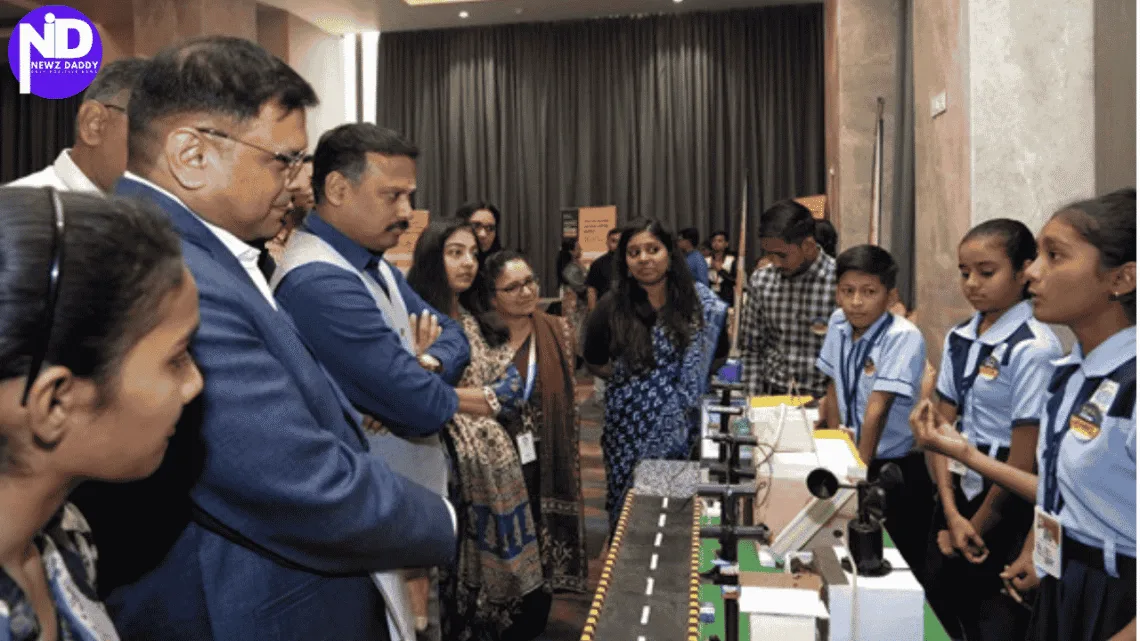MyCode: A New Chapter in Gujarat’s Educational Journey
Newzdaddy Educational Updates
The MyCode Initiative Advances Gujarat’s NEP 2020 Goals by Reaching 3.8 Lakh Students
Through the MyCode project, where 470 Master Trainers have given 8,652 government school teachers future-ready pedagogies, the Gujarat Council of School Education–Samagra Shiksha (GCSE-SS) is advancing NEP 2020 by fostering digital literacy and 21st-century skills in public education, reaching over 3,83,636 students throughout Gujarat.
Computational thinking (CT) has been introduced in government schools since 2022 through MyCode, a joint project by GCSE-SS, Capgemini, and Quest Alliance. This has allowed students, particularly those from digitally underserved communities in Ahmedabad, Bahashantha, Kheda, Anand, and other districts, to participate in STEM clubs, ideathons, hackathons, and career exploration sessions. With 8,810 schools spread over 13 districts, the program has sparked a change in pedagogy by empowering teachers to use technology and promote conversations on gender, self, and wellbeing while promoting STEM ideas.
This year’s Hack to the Future (HttF) inter-school hacking in Gandhinagar marked the culmination of Mycode. 15 student prototypes were on display at the event, including a Fire Fighting Robot that can identify fires and trigger a foam suppression system, and a Smart Farming System that employs infrared sensors to identify animal incursions and safeguard crops using solar-powered lights that the students constructed with the assistance of their teachers. Anjaliben Ambalal Vanzara, a Class 7 student from Chhipadi Kanya Shala in the Kheda district, created a women’s safety gadget that was a noteworthy project. In an emergency, the gadget’s panic button notifies the closest police station. “After realising the difficulties girls encounter because of safety concerns, which frequently result in school dropouts or limited mobility, we developed this device,” Anjaliben explained.
Additionally, HttF made it possible for students and teachers to communicate with the GCSE-SS State Project Director, Shri. Ranjeeth Kumar J, IAS. According to him, NEP 2020 has promoted critical thinking, problem-solving, and computational thinking as fundamental skills for students in the twenty-first century. HttF is evidence of how to promote STEM excellence, technological empowerment, and innovation in public education. The government is speeding up the adoption of computational literacy and making sure that students, especially those from underprivileged communities, have the critical thinking and digital fluency they need to succeed in the workplace of the future by supporting such programs.
“This initiative aims to equip learners with essential tech skills while providing a collaborative platform to explore solutions for climate resilience, gender equity, safer living environments, and overall well-being,” stated Anurag Pratap, Vice President and CSR Leader, India, Capgemini. Students participate in practical learning through hackathons, using technology, design thinking, and programming to solve real-world problems.
In the last six months, learners have shown significant improvement as a result of the initiative: 48% of them reported utilising AI tools, 53% reported using technology for learning, 71% worked with Scratch programming, and 68% took part in hackathons.
“Our approach to ideathons and hackathons is designed to nurture problem-solving and creativity among learners,” stated Neha Parti, Director-Schools, Quest Alliance. Students acquire the self-assurance and abilities necessary to create meaningful solutions for both themselves and their communities as a result of these experiences. They bring imagined solutions to practical issues to life through the use of technology.
According to a recent assessment of the program’s effects in 25 schools in Ahmedabad, Kheda, Gandhinagar, Chhota Udepur, and Aravalli, 77% of teachers were in favour of it being continued, pointing to gains in digital literacy and computational thinking among students and teachers. Since its introduction, more than half of the educators reported improved student results in critical thinking, creativity, enthusiasm in STEM, and general performance. The program’s next phase will create a digital training module that will enable teachers to lead hackathons and ideathons, encouraging students to think critically and solve problems.
Must Read:
EDII’s 24th Convocation Inspires India’s Next-Gen Entrepreneurs
Uniting for Education: Dream Foundation and TTEC Empower Ahmedabad’s Youth






